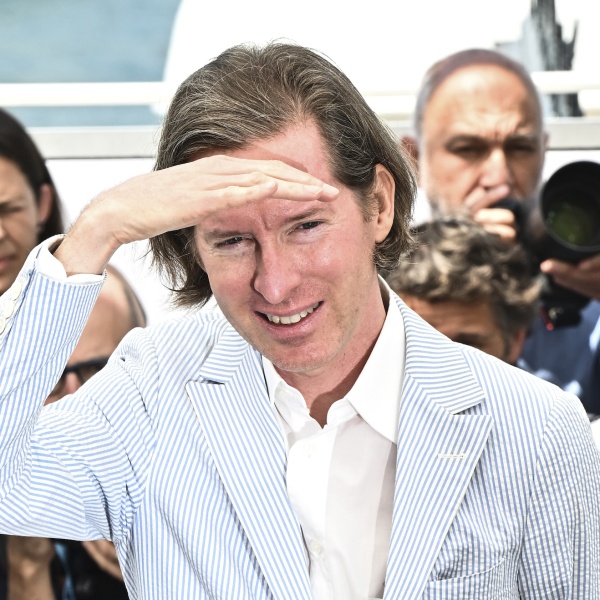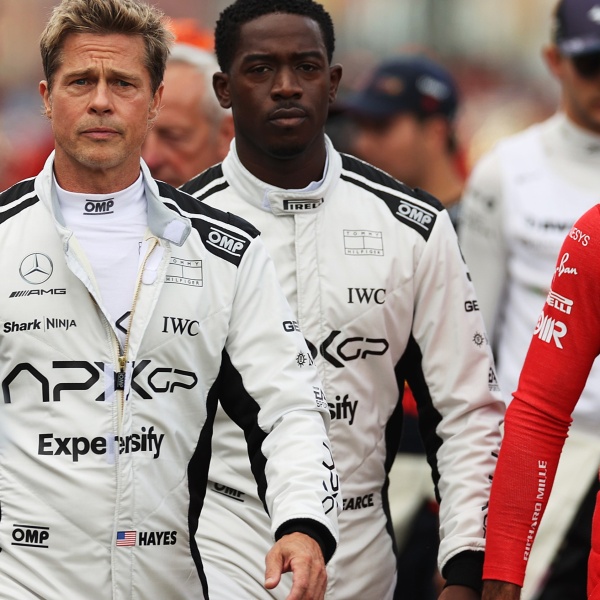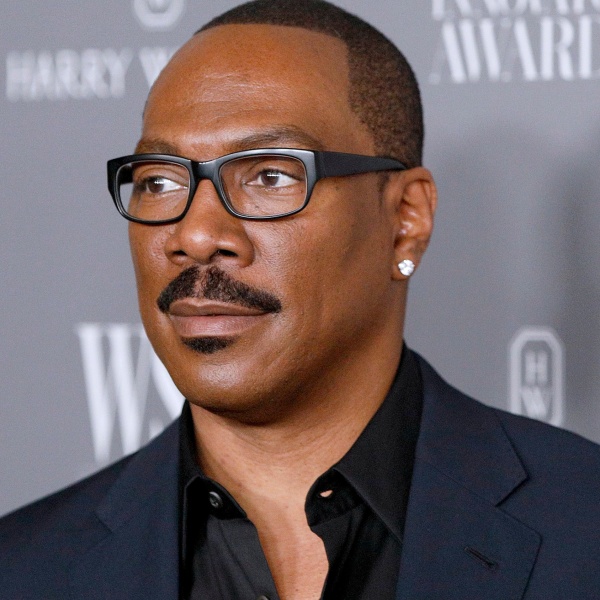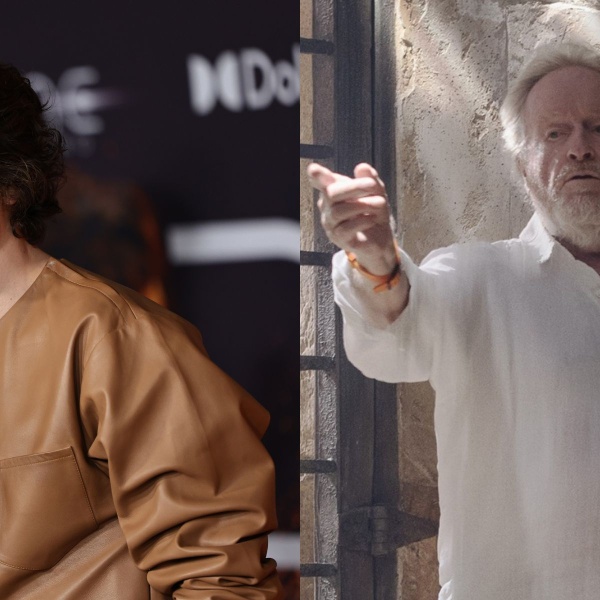Where were you when the best Coachella set since Beyoncé happened? When Danny Elfman took the stage of Coachella shirtless on April 2022 to perform music from his band Oingo Boingo as well as the scores of “A Nightmare Before Christmas,” “Edward Scissorhands,” and — of course — “The Simpsons,” it set Twitter afire. The sometimes goofy, undeniably epic performance was a delight that reminded people of a universal fact: Danny Elfman rocks.
Elfman made his film composing debut in 1980 with “Forbidden Zone,” which was directed by his brother Richard Elfman and was based on the work of Danny’s experimental musical theater group “The Mystic Knights of Oingo Boingo.” The Mystic Knights were soon reformed into the (somewhat) more conventional new wave band Oingo Boingo, and their music found a fan in director Tim Burton, who recruited Elfman to score his feature debut “Pee-wee’s Big Adventure.” From there, a partnership was formed, and Elfman’s scored most of Burton’s works since, including iconic themes for films like “Scissorhands,” “Batman,” and “Beetlejuice.”
Composing quickly became Elfman’s main gig, and he would retire Oingo Boingo in 1995. His non-Burton works include the scores for the first two “Spider-Man” films, “Dick Tracy,” the first “Mission: Impossible,” all of the “Men in Black” films, and Henry Selick’s “Nightmare Before Christmas,” which also featured him as the singing voice for Jack Skellington. Elfman has bafflingly never won an Oscar, but he does have two Emmys for his work on the “Desperate Housewives” theme.
One of Elfman’s most recent projects saw him reunite with Burton for “Wednesday,” an “Addams Family” spinoff that sees Jenna Ortega play the famously emotionless teenager as she develops psychic powers and heads to boarding school. Elfman composed the score for the outrageously popular Netflix series, and he’s one of the creative team members set for IndieWire’s annual Consider This Event ahead of this year’s Emmys. Joining him on a panel of Netflix crafts professionals is his “Wednesday” co-composer Chris Bacon and music supervisor Jen Malone, as well as members of the “Beef” and “Stranger Things” teams.
Here’s a look at the 13 best songs Elfman has written for screens big and small, ranging from musical numbers in “The Nightmare Before Christmas” and “Corpse Bride” to the main theme of “The Simpsons.” Entries are listed chronologically, and selections have been limited to one track per title.
With editorial contributions by Christian Blauvelt and Christian Zilko.
-
“Beetlejuice” (1988) — Main Title

Image Credit: ©Warner Bros/Courtesy Everett Collection It’s no wonder Tim Burton’s fiendishly fun “Beetlejuice” became a Tony-nominated musical. Like “Heathers” and “Mean Girls” before it, the film boasts a kitschy, color-blocked crassness that’s already so heightened you can’t help but accept “once more with rhymes!” as justification for cultural double-dipping. But even if the Broadway show was nothing more than an excuse to give someone other than Michael Keaton a shot at the title role, the musical legacy of “Beetlejuice” exists because of Elfman. His brilliance is arguably best captured in its title song foreshadowing the demise of one Mr. and Mrs. Maitland.
The composer’s second collaboration with Burton is a fitful, brass-heavy balancing act: a discordant combination of ghostly choirs, syncopated cymbals, and screeching strings. The title music is as inviting and outrageous as a circus interlude but enjoys a minor cynicism that makes even that tiny sample of Harry Belafonte’s “Day-o” chilling. There’s restraint in Elfman’s conducting — but also a lurking power worth listening to one, two, maybe even three times. —AF
-
“The Simpsons” (1989-present) — Main Title

Image Credit: ©20thCentFox/Courtesy Everett Collection When people think of Danny Elfman, the immediate association is with the haunting, gothic work he’s produced for Tim Burton. But one of the composer’s most iconic songs is so divorced from the tone people expect from Elfman that it’s easy to forget he wrote it at all. For over 30 years, every episode of “The Simpsons” has opened with Elfman’s legendary theme, an orchestral number that captures the frenetic, fast-paced comedy of the show at its very best. Elfman wrote the number after series creator Matt Groening showed him a rough cut of the equally famous opening sequence, and aimed for a retro feel — which shows in the ear worm opening, featuring a chorus of voices singing the title of the animated series in a way that’s impossible to get out of your head.There’s so many small touches to admire in the theme, like the space it leaves for Lisa’s epic (and constantly changing) saxophone riff towards the middle of the full opening. But it’s also so ingrained in the minds of anyone who’s ever watched the show that trying to view it objectively is like trying to critique Pomp and Circumstance: it’s simply a classic. —WC
-
“Batman” (1989) — “The Batman Theme”

Image Credit: ©Warner Bros/Courtesy Everett Collection When that brass section, playing low, slow-builds to a crescendo to open “The Batman Theme,” punctuated by orchestral bells, Danny Elfman was able to create a sense of dread for the brooding Dark Knight and, other than John Williams’ “Superman” theme, the most iconic music for a superhero ever. If Williams captured the sense of flying with his music, Elfman bottled the feeling of a breakneck chase over rain-slicked pavement with flickering streetlamps. There’s even the hint of an organ in his wall of sound, to add a touch of the Gothic to his noir soundscape. No wonder it’s been repeated and copied endlessly, including by Elfman himself, who remixed it to become the theme for “Batman: The Animated Series” (before that was replaced by a theme from Shirley Walker). He then brought the theme back for the much maligned “Justice League” movie, along with Williams’ “Superman” theme, to add an additional bit of gravitas for Ben Affleck’s portrayal of the Caped Crusader. —CB
-
“Edward Scissorhands” (1990) — “The Grand Finale”

Image Credit: ©20thCentFox/Courtesy Everett Collection Elfman has called the score for “Edward Scissorhands” one of his personal favorites, and it’s easy to see why: the entire score is a majestic achievement, with sweeping epic compositions that give the heartbreaking tragic romance its heart and soul. And Elfman’s score only builds in complexity and beauty throughout the movie, until it peaks with the stunning final track, a lovely and somber piece that builds to an epic choral finish. —WC
-
“Army of Darkness” (1993) — “March of the Dead”

Image Credit: ©Universal/Courtesy Everett Collection The original “Evil Dead” trilogy is a study of a franchise gradually learning to let go of its seriousness. “Evil Dead 2″ used its larger budget to blow up (and arguably improve on) the ridiculously gory format of its microbudget predecessor, but “Army of Darkness” was the film that truly cemented its status as a camp horror series. The film’s medieval setting (and anachronistic chainsaw massacres) remains a love-it-or-hate it point of contention among Deadites, but there’s no denying that Elfman’s musical contributions helped sell it. While he did not score the entire film, Elfman kicked off his lifelong collaboration with Sam Raimi by providing the iconic “March of the Dead” theme. Elfman combines the pomp and circumstance of John Williams’ “Imperial March” with the unsettling nature of the best John Carpenter slasher scores to create the perfect backdrop for an influx of zombies. —CZ
Read IndieWire’s guide to the Evil Dead franchise.
-
“The Nightmare Before Christmas” (1993) — “Jack’s Lament”

Image Credit: ©Buena Vista Pictures/Courtesy Everett Collection The vast majority of people are more familiar with Elfman’s instrumental music than they are with the former Oingo Boingo frontman’s voice. And those who have heard Elfman singing are most likely to have heard him in “The Nightmare Before Christmas,” where he provided the magnificent singing for main character Jack Skellington (whose speaking lines were delivered by Chris Sarandon). The goth stop-motion operetta is filled to the brim with Elfman’s impeccable songs, but his best singing moment might be the early number “Jack’s Lament.” A classic “I Want” song twisted into a more melancholy form, the song sees Jack lament his boredom over the routines of Halloween. Elfman both sings and acts it well, perfectly conveying the bone deep sadness driving Jack. —WC
-
“Men in Black” (1997) — “M.I.B. Main Theme”

Image Credit: ©Columbia Pictures/Courtesy Everett Collection Yes, the song everyone remembers from “Men in Black” is the rap song from star Will Smith. But Elfman’s score for the film garnered him his very first Oscar nomination, and deservedly so. It’s a fun departure from what we’ve come to expect from a Elfman score, with some electronic elements mixed in with his typical orchestral work to fit the vibe of the blockbuster. His main theme is particularly awesome, using a pulsing drum beat to set the tone for an awesome sci-fi adventure. —WC
-
“Spider-Man” (2002) — “Farewell”

Image Credit: ©Columbia Pictures/Courtesy Everett Collection Elfman brought the orchestral bells back for Sam Raimi’s first Spider-Man movie, but this time he was going for a theme that unabashedly conveyed heroism, with a dash of romance and melancholy too. This might be the best use of French horns since Luke’s theme in the original “Star Wars”? The horns power those cascading notes of Spidey’s main theme throughout the movie, but return at an especially powerful moment: when Tobey Maguire’s Peter Parker tells MJ (Kirsten Dunst) that “all I have to give” is to be her friend, not something more, and he walks away. Then the horns power up as he narrates, “Whatever life holds in store for me, I will never forget these words: With great power comes great responsibility. This is my gift… my curse.” Cut to Spidey swinging through the canyons of New York as a chorus chimes in. Cut to everyone in the audience having chills. —CB
-
“Big Fish” (2003) — Main Title

Image Credit: Courtesy Everett Collection “A grown man just constantly lies to his son” might not seem like the elevator pitch for a masterpiece, but “Big Fish” might be the most moving film of Tim Burton’s career. The loving exploration of the way parents use their children as captive audiences to re-contextualize their own lives succeeds in part because it treats Edward Bloom’s tall tales with so much respect. All of the fairy tales that he tells his son are captured on film with the same cinematic gravitas that he imagined them with in a quest to blur the line between fantasy and reality. So it’s fitting that Elfman’s score takes a similar approach, backing up Edward’s exaggerations with sweeping, triumphant tunes that match his enthusiasm for his own (made-up) life. The title theme is so majestic that you’d never expect you were getting ready to listen to a bunch of fibs. The fusion of Elfman’s understanding of the narrative and his musical artistry earned him his third Oscar nomination for Best Original Score. —CZ
-
“Desperate Housewives” (2004-2012) — “Desperate Housewives Theme”

Image Credit: ©ABC/Courtesy Everett Collection / Everett Collection Play this back to back with “The Simpsons” theme and you’ll find, not repetition, but the perfect complementary pairing. Where “Simpsons” is pure orchestral anarchy from the start, the “Desperate Housewives” theme, electronic, builds to a spinning-top frenzy, like the tension a group of suburban moms standing together might feel, worried about whether their kids might injure themselves in a bouncy house. It’s a musical expression of one’s blood pressure rising, maybe as one grips a basket of blueberry muffins a little too white-knuckle hard. —CB
-
“The Corpse Bride” (2005) — “Remains of the Day”

Image Credit: ©Warner Bros/Courtesy Everett Collection Tim Burton’s “Corpse Bride” pales in comparison to “The Nightmare Before Christmas,” visually, narratively, and musically. And yet, Elfman eeks out a strong smattering of tunes for the still under-appreciated 2005 stop-motion work. For the ghostly romance, starring Helena Bonham Carter and Johnny Depp, Elfman coughed up the tragicomic “Tears to Shed” — sung by a spider, a worm, and the corpse they inhabit — plus two vivacious ensemble numbers in “According to Plan” (sung above ground) and “The Wedding Song” (sung below it). Not to mention, there are a selection of great piano instrumentals.
But the best song is — of course — the one Elfman actually performs on. He lends his voice to undead lounge singer Bonejangles for the jazzy backstory track “Remains of the Day,” scatting his way through a “Seussical”-esque animation sequence that’ll make you want a martini and anatomy chart. It’s the most clever “Corpse Bride” gets by a mile, with its unimpeachable technical precision punctuated by a homey simplicity and delightful silliness. (“This is gonna be good!“) —AF
-
“Silver Linings Playbook” (2012) — “Happy Ending”

Image Credit: ©Weinstein Company/Courtesy Everett Collection The chaotic relationship at the heart of “Silver Linings Playbook” is tumultuous even by David O. Russell standards. Bradley Cooper and Jennifer Lawrence star as a recently-institutionalized divorcee and a young widow whose mental illness is less diagnosed but no less real. Their endlessly angry, horny, and generally messy attempts to free themselves from the emotional strangleholds of past relationships and start something new together is tough to watch at times, but it ends with something resembling contentment. The calm after the storm is flawlessly encapsulated by Elfman’s denouement piece “Happy Ending,” a pairing of a minimalistic piano composition and choral arrangements that gives everyone a chance to catch their breath. It’s not so much a happy ending as a signal that a beginning is finally possible — and a high point of Elfman’s ongoing collaboration with Russell. —CZ
-
“Wednesday” (2022-present) — Main Title

Image Credit: Courtesy Everett Collection Elfman’s aesthetic is so creepily, kookily, altogether ookily perfect for “The Addams Family” that it’s a wonder it took him so long to write the score for an iteration of the franchise. When he did, it was with “Wednesday,” the Netflix series introduced the classic characters for a younger generation. His main theme for the show brings all of the elements we’d expect from both an “Addams Family” score and an Elfman score — choral voices, spooky pianos and violins, a suitably gothic vibe — but it’s complemented by a harder metallic edge, with thumping drums that bring the property firmly into the 21st century. —WC






